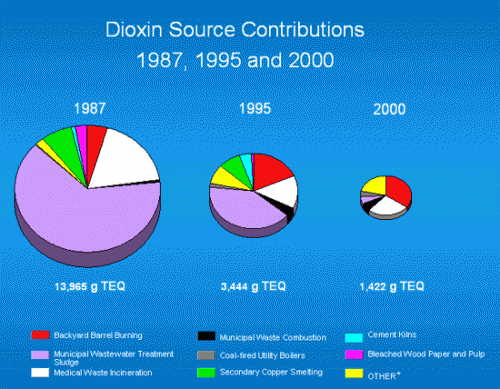I Do Not Think That Word Means What You Think It Means
Today's word in question: "safe"
The Environmental Protection Agency is holding public hearings today to review a proposed safe exposure limit for dioxin, a known carcinogen and endocrine disruptor produced as a common industrial byproduct.
It's all but impossible to avoid exposure to dioxin. Research done by the Environmental Working Group has shown that adults are exposed to 1,200 times more dioxin than the EPA is calling safe "” mostly through eating meat, dairy and shellfish "” and mothers pass it on to babies in the womb and in breast milk. A nursing infant ingests an amount 77 times higher than what the EPA has proposed as safe exposure. (Formula is also widely contaminated with the stuff.)
If you tell me that despite falling cancer incidence and survival rates and longer life-spans, we are all exposed to a chemical at 1200x its "safe" level, I might argue that we have defined the safe level too low. Of course, the author draws just the opposite conclusion, arguing the standard needs to be tightened.
Two observations
- Things are getting better. Apparently dioxin emissions (mostly from burning trash) have fallen by 90+% over the last twenty years. In the blog post above, the author lambastes the EPA for dragging its feet on this standard for 30 years, but the lack of it sure does not seem to have been a problem

- I am not sure how setting a dioxin standard by the EPA is going to help. Since most dioxin makes its way into the food chain (such as into dairy products), I suppose this would then give the government license to pound dairy farmers for the dioxin content of their products. But what does this get us, and how is this the dairy farmers' fault? For the last 30 years, as described at this site, the EPA and voluntary efforts by emitters have been working step by step through the pie chart above, knocking off the worst emitters. You can see that clearly in the change of mix and the overall reduction. This seems like a smart strategy.